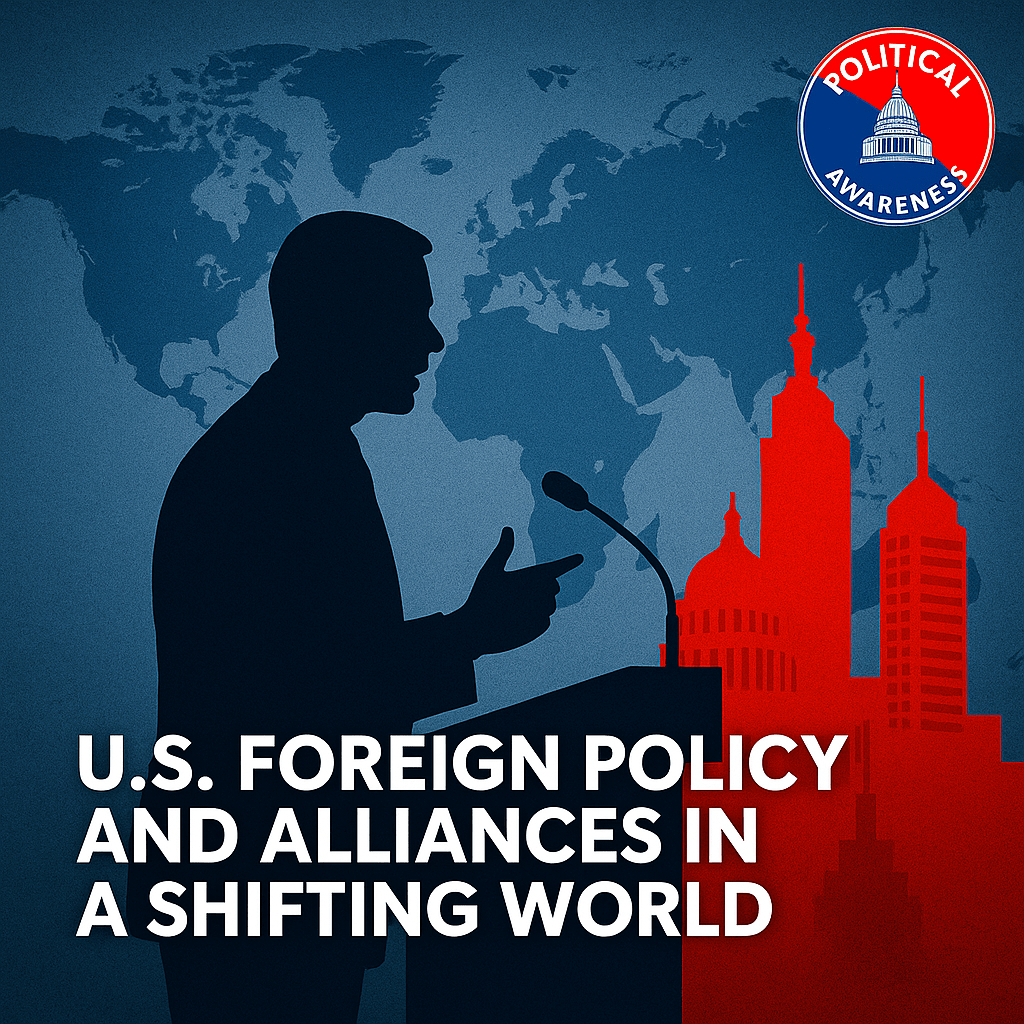Note: Political Awareness’s published communication is never authorized by any candidate or their committees.
U.S. Foreign Policy and Alliances in a Shifting World
The United States enters 2025 with alliances under pressure but not broken. NATO, once questioned, has regained relevance as Russia’s war in Ukraine continues to shape European security. Yet the cracks remain: debates over defense spending, troop deployments, and whether Europe can shoulder more of its own burden. In Washington, bipartisan divides filter into every discussion — some lawmakers push for sustained commitments, others argue for restraint and reduced foreign entanglements.
The Indo-Pacific is no less fraught. Partnerships with Japan, Australia, and South Korea deepen as counterweights to China, but regional allies also watch for consistency. Trade disputes, technology controls, and questions about U.S. credibility complicate military cooperation. The Biden administration and Congress alike face the challenge of convincing partners that America can maintain a steady course despite internal political turbulence.
Credibility abroad now ties directly to politics at home. Allies see the gridlock, the shutdown threats, and the partisan battles, and they ask whether U.S. promises will endure past election cycles. That skepticism weakens deterrence. The credibility gap is less about military strength and more about political reliability.
Alliance modernization remains a central test. NATO has begun integrating cyber and space domains into its framework. Indo-Pacific partners are experimenting with new joint exercises, supply chain coordination, and information sharing. Yet modernization requires resources, and resources require consensus. The U.S. must persuade both Congress and the public that alliances are not favors to others but investments in stability that ultimately reduce the cost of conflict.
In a shifting world, the debate is not whether America has allies but how it sustains them. Burden-sharing must be real, modernization must be funded, and U.S. political leaders must signal steadiness. Otherwise, partners will hedge, adversaries will exploit doubt, and America’s credibility will erode not with a single event but with a series of small fractures.
Foreign policy in 2025 will be defined not only by what happens abroad but by whether the U.S. can demonstrate the political will at home to keep its alliances strong.


Leave a Reply